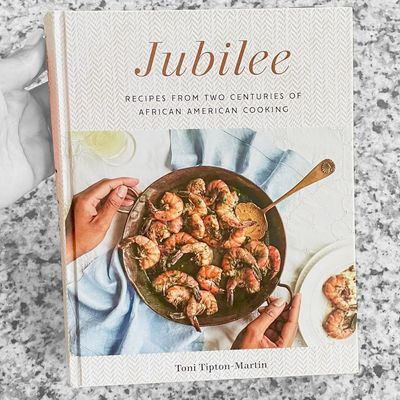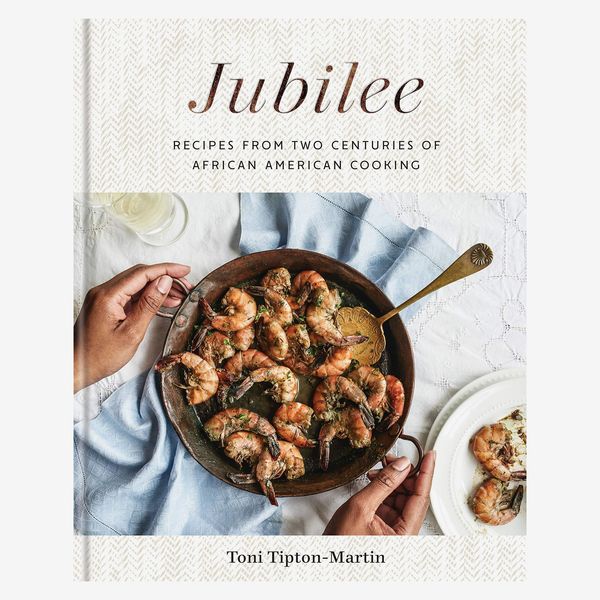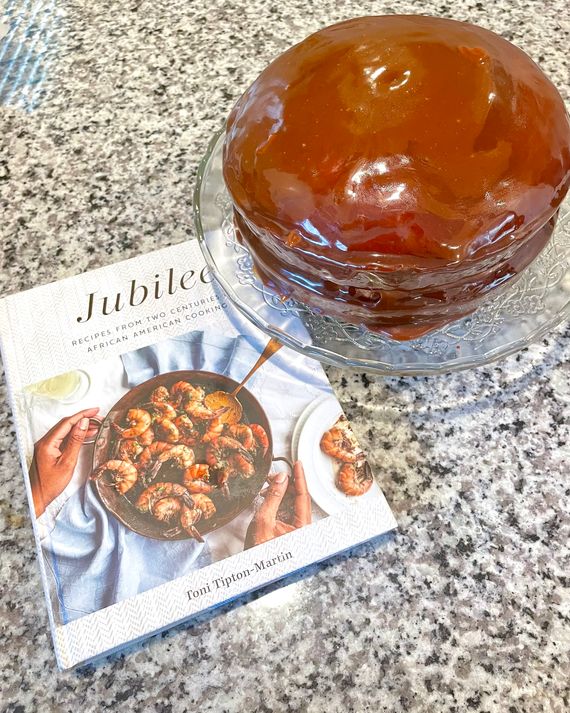
If you’ve read any of our Strategist editor hauls, you’ll know that our writers and editors buy a lot of stuff, and even though we think carefully about each item that goes into our carts, there are still standouts. To close out the year, we’ve asked our staffers to write about the best thing they bought in the past 12 months. Here, Latifah Miles on the cookbook that connects her to her Black cultural heritage.
I grew up in the kitchen, next to my grandmother. She’d chop, I’d mix; she’d blend, and I’d taste-test. She’d tell me stories about the foods she loved as a young girl living in a sharecropping home in the Deep South, and I’d grimace at the thought of eating pickled pigs’ feet and scrapple. Our relationship around creating meals together is a fond memory of my childhood spent enjoying plates of smothered turkey wings and expertly seasoned collard greens.
My grandmother passed away when I was in middle school, before I was able to learn all of her cooking knowledge and recipes. And ever since she planted the seed of cooking curiosity, my connection to traditional Black American foods has been an important part of my culture that I’ve wanted to preserve. Dishes like baked macaroni and cheese, sweet potato pie, and fried okra are rooted in rich history, connecting Black people in a way that transcends generations. So I’m always on the hunt for recipes that taste like my upbringing.
One of my go-to sources is Black Girls Cook and Mealplan, a private Facebook group for Black women who like to share their recipes. On any given day, I can scroll through the feed and find drool-inducing pictures of sizzling roasts, glazed pound cakes, and potato salad with that perfectly yellowed hue that confirms the person who made it has earned the right to. It was earlier this year that someone in the group posted a photo of Toni Tipton-Martin’s 2019 cookbook, Jubilee: Recipes From Two Centuries of African American Cooking, and the cover photo of saucy, juicy shrimp drew me in.
Multiple women in this community of home chefs swore that Jubilee was the book to get, noting that their copies were full of sticky notes and dog-eared pages. One poster, a librarian, said she’d even included it in a book discussion at her library. While I’d researched similar cookbooks before, I never felt moved to actually purchase them — either the recipes were too involved or they took too many liberties with traditional preparations. Not only was Jubilee recommended by people with a cooking sensibility I trusted, but their photos of the dishes they’d made were hard to resist.
When it arrived, I spent the next month reading the recipes, bookmarking the ones that looked interesting and the ones that reminded me of cooking with my grandmother. Beyond the beautiful photography that truly captures the texture and color of the dishes, the most delightful part of Jubilee is the interwoven history. From the origin stories of specific African and Caribbean dishes handed down through centuries to excerpts of recipes dating as far back as 1881, Tipton-Martin’s work is as much a cookbook as it is an exhibition of the prismatic heritage of Black culture.
The first recipe I tried was caramel cake, and it was mercifully straightforward despite requiring techniques I’d never attempted before, like making actual caramel. And while baking a phenomenal dessert, I learned about the role that Black people have played throughout hundreds of years of pastry-making — a captivating bite of my own cultural history that I didn’t know.
So far, I’ve made about ten recipes, including baked macaroni and cheese (which came out delicious) and the saucy, succulent Louisiana barbecued shrimp from the cover that originally caught my interest. A quality recipe, in my amateur opinion, should be easy to follow and comprehensive — and all of the Jubilee recipes I’ve tried have met that criteria. And since many of them are interpretative modern versions of older recipes, they naturally leave room to make them your own, whether by swapping buttermilk for whole milk or using what you have on hand instead of hunting down an obscure ingredient. That makes them feel intuitive; preparing them reminds me of being a young girl in my grandmother’s kitchen, watching her pour, stir, and mix with an innate confidence that she’s making food that will feel like home.
The Strategist is designed to surface the most useful, expert recommendations for things to buy across the vast e-commerce landscape. Some of our latest conquests include the best acne treatments, rolling luggage, pillows for side sleepers, natural anxiety remedies, and bath towels. We update links when possible, but note that deals can expire and all prices are subject to change.









